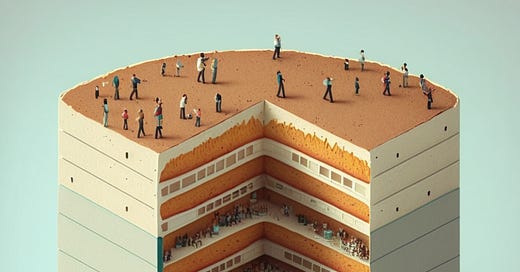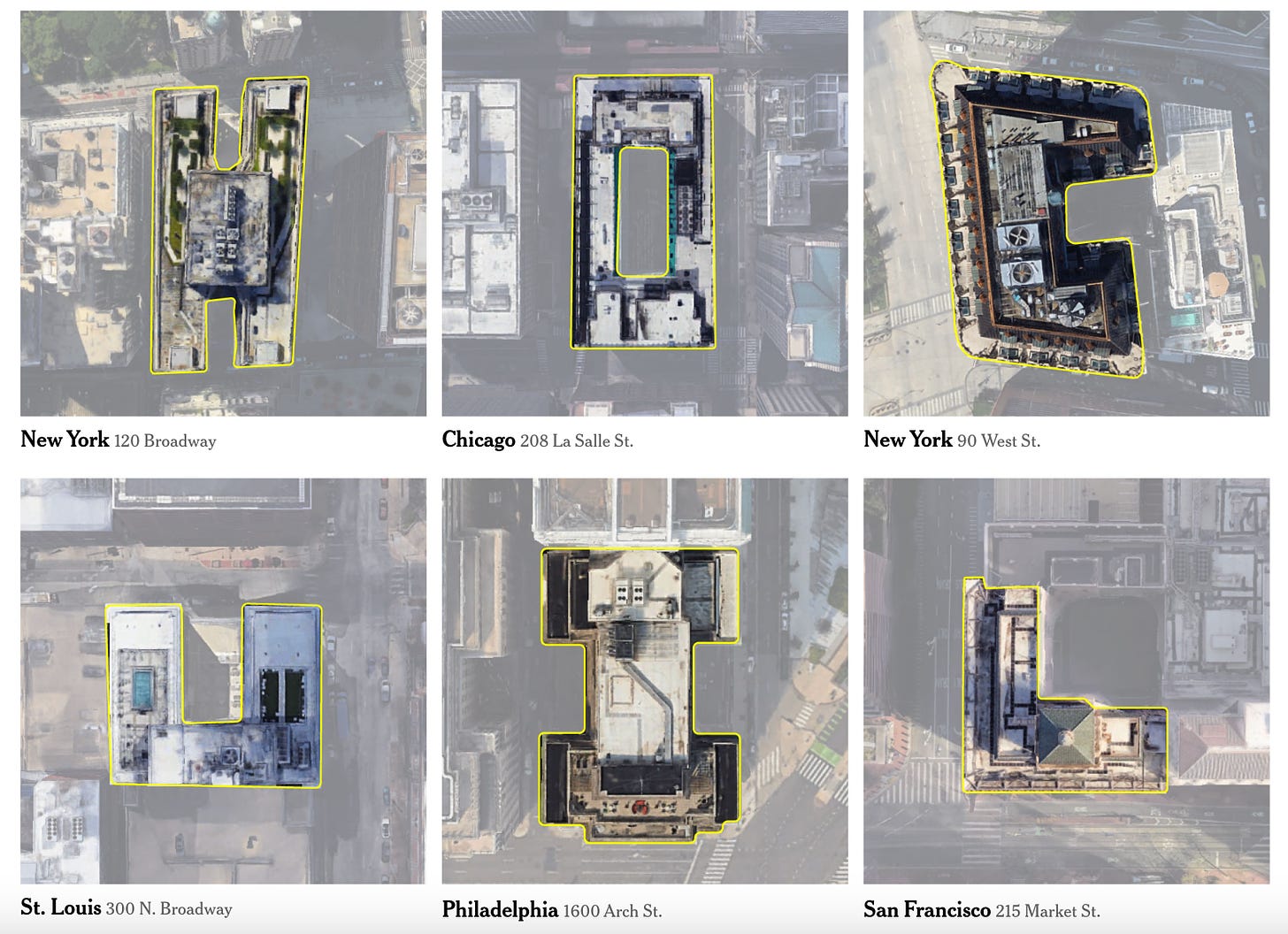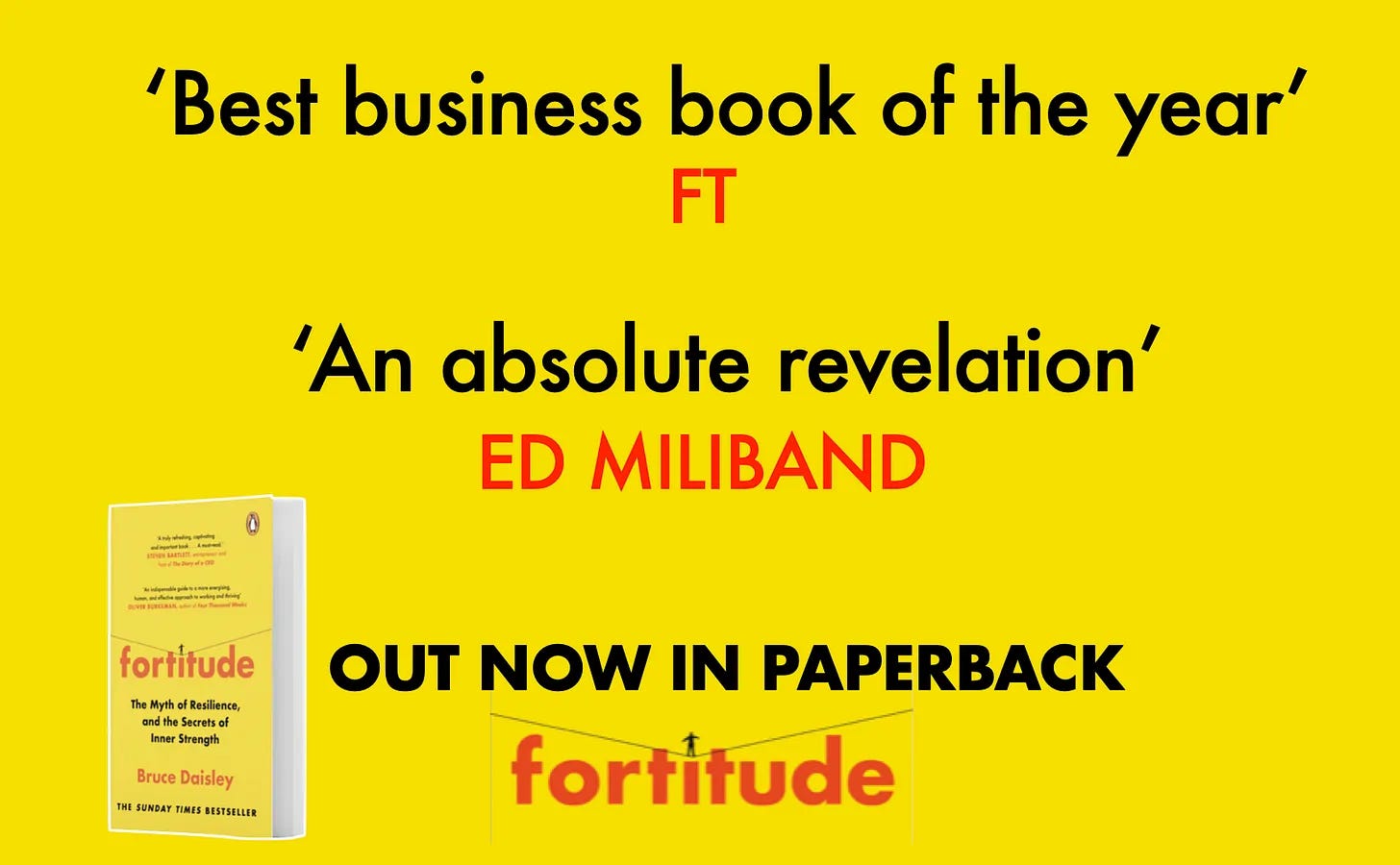Could your office become a home?
ALSO: Middle managers in the firing line / AI rapidly impacting work
Could converted office buildings solve the housing crisis?
Such is the change in working since the Pandemic that our need for office space has radically transformed. Leesman predict that the under usage of offices will lead to a 40% decline in the demand for this real estate in the next few years. City centres sit empty on Fridays and the economics of business districts is being undermined by the reduced footfall caused by hybrid working.
So, could we put this space to better use? This New York Times piece is fabulous in helping to dissect the science of converting offices to flats/apartments.
When it comes to repurposing the challenge isn’t the height of buildings, it’s the size of the floor plates (and the consequent darkness of inner recesses of the structures). For that reason old offices often make easier conversions than the monster glass enclosed buildings that followed them. The form of old buildings (that the NYT shows looking like the letters H, O, C, U, I or L) have more light sources than the more recent constructions.
In contrast here is the floor plate of One Canada Square in Canary Wharf, London. In the UK to be classified as a bedroom a room needs a window, meaning that this building wouldn’t be a suitable case for conversion. The article highlights how some developers have dropped light wells down the centre of some structures to solve this.
Overall it’s a great read… Which should be paired with this piece which gives gives a sense of the ambition that some developers are bringing to this conversion process in the US.
The new target in company layoffs? The middle manager who manages two or three workers. Nice breakdown of the culling of middle managers in the FT
‘[At Facebook/Meta] middle managers working from home were keen to demonstrate to executives that they were still valuable, resulting in them attending as many virtual meetings as possible to increase their own visibility internally. As a result, there were “too many people on too many calls’
AI is coming to the workplace very very quickly: Zaha Hadid Architects are perhaps the most respected visionaries in their profession. In this interview they discuss how they are using AI tools like Dall-E and Midjourney to help them push the boundaries of their own imagination. I love the fact they used prompts asking Dall-E to suggest what a Zaha Hadid building might look like, it feels like a level of Inception. (Watch the presentation for more goodness, they talk about using game engines and projectors to help them realise space more fully which feels reminiscent of the creation of the Disney show The Mandalorian)
The crucial trait for happiness (and to be attracted to other people)? ENTHUSIASM
How we absorb information: 9 year olds who read on tablet are a school year behind those who read on paper books
Most people have heard talk of London taxi drivers’ brains changing to adapt to their knowledge of streets, but it doesn’t stop there the job we do seems to have an impact on how our brain develops
“One of the men in your entourage has been to me and told me that there is a danger of your being generally disliked by your colleagues and subordinates because of your rough, sarcastic, and overbearing manner.” If you listen to The Rest is Politics you’ll have heard Rory Steward read the letter that Churchill’s wife sent to him about his domineering approach to members of his office - strongly worth a read in the context of Dominic Raab’s bullying case
My book Fortitude is about how resilience is found in a blend of community, identity and control. Here’s some articles relevant to that this week









